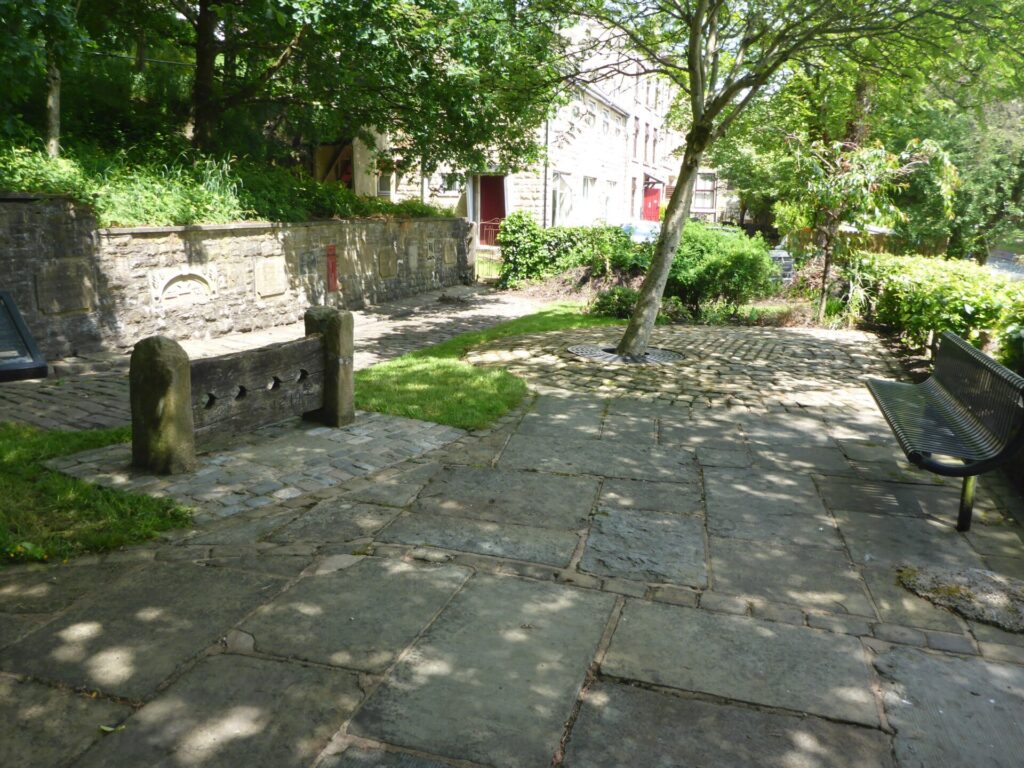The term “Justices of the Peace” originated in 1361, during the reign of King Edward III. It traces back to an act from 1327 which called for the appointment of ‘Good and Lawful men’ in every county to maintain the peace. These local justices, or magistrates, were typically gentlemen with high standing in the community, often landowners, and frequently served on various boards and committees. The inaugural magistrate to serve in Bacup was Mr. James Whitaker of Broadclough Hall, who took his oath as a magistrate on April 29th, 1824.
It is said the earliest prison in the area was located near Lane Head Lane, close to the historic Buck Inn. Prisoners were confined behind a heavy flagstone that sealed an arched entryway. Another detention place, known as “The Lockup,” was later established near Hammerton Green, adjacent to the recently built Pine House.
The stocks, a device for public punishment, originally stood where the library is now situated, before being relocated to the Lockup’s current location on Todmorden Road. A stern warning sign near the stocks proclaimed that “any wanderers or beggars found in the village, or the wider Forest of Rossendale would be seized and prosecuted vigorously”.
The stocks were reserved for those who committed minor infractions such as brawling, cursing, or drunkenness. In certain towns, a peculiar form of public shaming involved making an inebriated person parade through the streets wearing a barrel-like ‘Drunkard’s Cloak,’ with openings for the head and arms.
On July 29th, 1857, the Bacup Courthouse was inaugurated, with its inaugural petty session convened on the same day. Previously, the Bacup Petty sessions took place at the George and Dragon Inn, where a rope across the room demarcated the magistrate’s elevated seating area from the public, symbolizing the authority of the law. By 1916, the Lancashire County Court sessions were conducted in Bacup and Rawtenstall, presided over by Judge Hugh Sturgess K.C., while the Bankside courthouse hosted weekly petty sessions every Wednesday at 11 am, led by the Mayor.
Serious offenders from Bacup and Stacksteads were detained in one of the lockups prior to their transfer to a House of Correction, such as Preston or Strangeways, awaiting trial at Lancaster Castle or Manchester during the subsequent assizes.
The Bacup Times once likened the darkness of the Bacup Courthouse to the infamous Black Hole of Calcutta.
